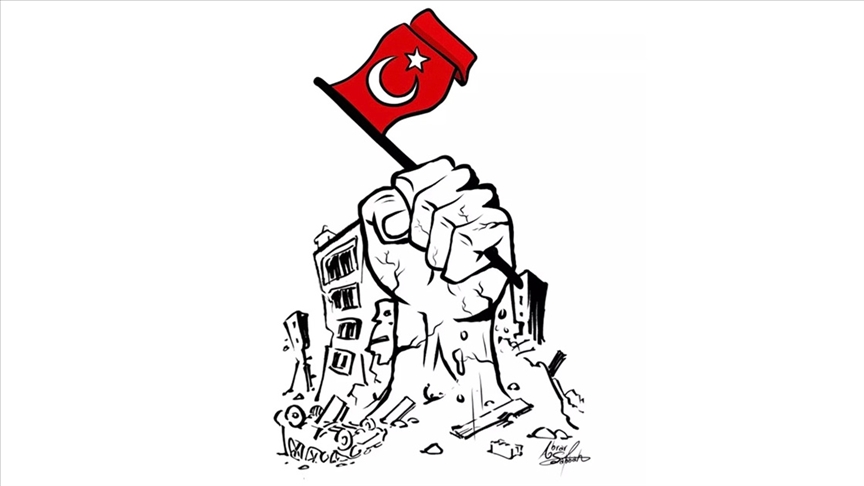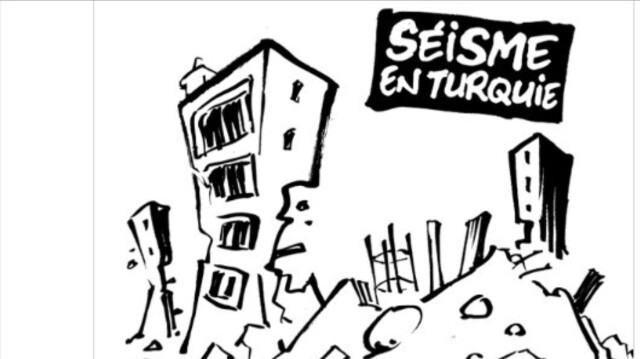However when he did make jokes and pleasantries, he always behaved moderately like he did in every aspect of his life. For example, as related by Abu Hurairah, when some of his companions said to Prophet Muhammad (ﷺ): “O Messenger of Allah, you joke with us?” He replied: “Yes, I do. But I only tell the truth.” This case reveals that the most important thing about a joke is that it should tell the truth and not be offensive.
Prophet Muhammad (ﷺ)’s Jokes and Plays with Children
The children the Prophet (ﷺ) joked most with were obviously his grandchildren, Hasan and Hussein. He would hold their hands, place them on his feet and then lift them to his bosom, hug and kiss them. Sometimes he would even carry them on his shoulders.
One day, while Prophet Muhammad (ﷺ) was going to a gathering with his companions, he ran into Hussein who was playing on the street. He stopped in front of him, opened his arms and called him. But Hussein did not want to come and he ran away playfully. Then the Prophet ran after Hussein laughing and caught him. Then he kissed and petted him and gave him his blessings.
In another narration by Jabir, the Prophet (ﷺ) was pretending to be a camel, and his grandsons were riding on his back. He was walking on his hands and feet and made a compliment to them:
“How wonderful is your camel and how wonderful riders you are!”
Anas b. Malik was a companion who had served the Prophet from the age of ten. The Prophet sometimes joked with him by saying: “Ya Za’l-uzunayn (O you with two ears).” Then he would pull Malik’s locks lightly and pet him.
The Prophet`s Jokes with His Companions
Jokes with His Wives
- According to a narration from Ibn Abbas, someone once asked him about the kinds of jokes Prophet Muhammad (ﷺ) made and he replied:
Once Prophet Muhammad (ﷺ) made one of his wives wear a long dress and told her; “Wear this dress and be grateful to Allah and walk like a bride dragging her skirts.”
- In a narration from Aisha, she narrates: Once the Prophet and I were on a journey. I was thin back then and I was not fat. The Prophet told the people around him:
“You go ahead.” When we were left behind far enough, he told me:
“Let’s race!”
We raced and I outstripped him. He did not mention it again until I put on some weight. Meanwhile I completely forgot about this incident. During another journey, he told the people around him to go ahead. When they went far away, he said to me, “Let’s race!” This time he outstripped me and started to laugh saying “we are even now.”
- From Numan b. Bashir: “When at the time Abu Bakr asked for permission to enter the presence of the Prophet, he heard from inside his daughter speaking to the Prophet in a loud voice. When he entered, he marched over to his daughter in anger.
He scolded his daughter saying: “I heard you shouting at the Prophet. What kind of a behavior is this?!” Then Prophet Muhammad (ﷺ) intervened and defended his wife. When Abu Bakr left, he asked Aisha: “Did not I save you from your father?” A few days later, Abu Bakr came to visit the Prophet again. When he entered the house, he saw that the Prophet and Aisha were getting along very well.” Then he said:
“Wonderful, let me share your peace as you made me share your fight.” Then the Prophet replied:
“That’s exactly what we are doing” (Abu Dawud, Adab, 92; Kandahlavi, IV, 1176-1177).
His Jokes with Other Female Companions
- As related by Hasan, an old lady from the Ansar (residents of Medina) came to the Prophet and told him:
“Please make a dua (supplication) for me that I go to heaven.”
The Prophet replied: “Did you not hear it? Old women cannot go to heaven.”
The old lady became upset upon this. Then the Prophet said smiling: “Have you not read the verse: "We have produced the women of Paradise in a [new] creation and made them virgins, devoted [to their husbands] and of equal age” (Al-Vaqiah, 56/35-37). Then he explained to the old lady in a pleasant manner that old women would go to heaven as young girls, and he cheered her up.
- Once Prophet Muhammad (ﷺ) told a lady that her husband has a white spot in his eyes. The woman sadly came to her husband and related what the Prophet had said. Her husband told her that the Prophet had joked with her and that he actually meant that everyone has a white spot in their eyes (En-Nuveyri, IV, 3; Ibn Kuteybe, 439; Krs. Koten, IV,466).
His Jokes with Male Companions
- As related by Anas b. Malik: Once a man came to the Prophet and wanted to give him a ride on his camel. The Prophet replied: “We should give you a ride on a baby camel then.”
“O Messenger of Allah, how can I ride on a baby camel?”
The Prophet replied:
“Are not all camels the babies of a mother camel?” (Abu Dawud, Adab, 92; Tirmizi, Birr, 57)
- As narrated by Anas b. Malik: A companion named Anjasha was leading the camels that were carrying the Prophet’s wives on the way back from the farewell pilgrimage. He was making the camels run with rhythmic songs he sang with his beautiful voice. The Prophet told him:
“O Anjasha, ride slowly, do not break the crystals” (Darimi, Istizan, 65).
Here the Prophet used a very delicate and gentle term for women. He stressed that his wives are pure and precious like crystal, and at the same time they are very delicate; they can easily be broken.
- Again narrated by Anas b. Malik: A bedouin named Zahir brought presents from the desert to the Prophet. As he was leaving, the Prophet also gave him presents and told him:
“Zahir represents us living in the desert and we represent him living in the city.” Although he was physically an ugly man, the Prophet loved him dearly. While Zahir was shopping, the Prophet hid himself behind him and asked “Who am I?” Zahir recognized him.
Then the Prophet asked “Who is going to buy this slave?”
Zahir replied: “O Messenger of Allah, do you find me worthless then?”
The Prophet replied:
“Are you not a slave of Allah? You are very worthy in Allah’s presence (Ahmad b. Hanbal, Tirmizi, Kandahlavi, III, 1176).
As can be seen from the above anecdotes, Prophet Muhammad (ﷺ) used the art of simile and puns very often.
Companions’ Jokes with the Prophet
- Once Prophet Muhammad (ﷺ) was playing with his grandsons Hasan and Hussein. The kids were sitting on his shoulders. When Umar saw this, he told the children:
“How precious is your horse!”
The Prophet replied:
“They are fine riders as well.” (Heysemi, ibid, IX, 181-182).
- In another incident, Hasan and Hussein got lost. The Prophet found them after a long search. The kids were very scared. The Prophet petted and kissed them. He placed both of them on his shoulders and was carrying them home. He ran into Salman who told the children:
“How lucky you are. You have a fine horse.” The Prophet replied:
“They are fine riders as well. But their father is even better than them” (Heysemi, ibid, 182; Koten, IV, 468).
Nuayman was one of the most humorous companions and he loved the Prophet dearly. Whenever a fine item came to Medina, he would buy it and then give it to the Prophet as a present. One day he saw that some fine quality honey had arrived Medina. He bought some and brought it to the Prophet. However he had not paid the salesman. He brought the salesman to the Prophet and told him to take the money from the Prophet. The Prophet asked:
“I thought you brought the honey as a present?”
Nuayman replied: “O Messenger of Allah! I wanted you to taste this fine honey so much, but since I didn't have any money, I did it this way.”
The Prophet laughed and paid the salesman (I. Abdilberr , el-Istiab, IV, 473).
For the entire text, please see, Yakit, Ismail, Hz. Peygamberi Anlamak (Understanding the Holy Prophet), Ötüken Yayınları, Istanbul, 2005.










No comments:
Post a Comment